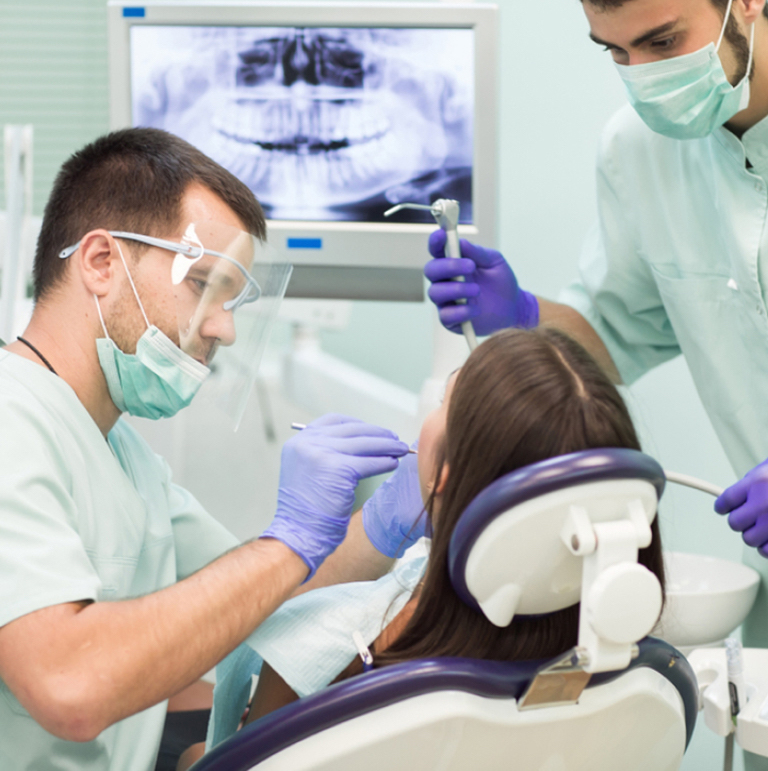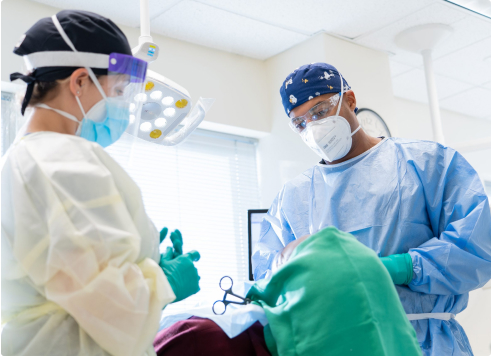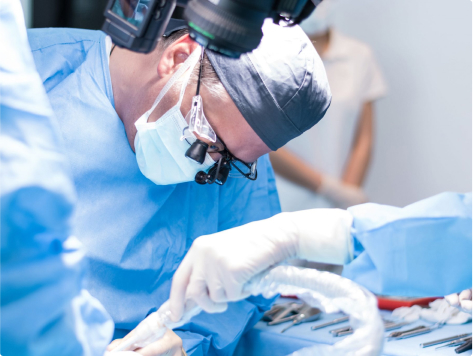
Google Verified Patient Reviews
What is Maxillofacial Surgery?
Maxillofacial surgery is a specialized field of dentistry offering a range of restorative and cosmetic treatments for the face, jaw, mouth, and neck.
Issues like disease, injuries, and defects often leave patients with painful and unsightly dental conditions. These conditions can complicate many aspects of daily life, from trouble eating and sleeping, to chronic discomfort and depression. Our oral and maxillofacial surgeons can restore functionality to the affected areas, improving your appearance and relieving discomfort.

Why Get Oral Maxillofacial Surgery?
Maxillofacial surgery is not limited to one specific kind of dental treatment. It encompasses many different oral surgery treatments to correct various dental conditions. The following are a few scenarios that could require maxillofacial surgery:
- Chronic dental pain
- Preparation for dental implants
- Extracting damaged or impacted teeth
- Oral disease treatment
- TMJ treatment
- Jawbone grafts
- Treatment of injuries related to facial trauma
- Eliminating tumors or cysts from the head and neck
- Correcting birth defects, like cleft lip
- Much more...

What to Expect During Maxillofacial Surgery
Maxillofacial surgery is most commonly used for corrective treatment and cosmetic procedures. The specifics of your maxillofacial surgical procedure largely depend on the kind of treatment you require. Operations can range from outpatient procedures to more involved treatment requiring several trips to the office to complete.
With most oral surgery, you can expect some or all of the following post-operation:
- Minor bleeding
- Sorness
- Bruising
- Swelling
- Sensitivity
- Residual numbness from anesthetics
- Grogginess (if sedated)
To ensure a swift recovery without any unforeseen complications, our doctors will provide you with a complete aftercare plan to follow along with at home. Depending on the procedure, your maxillofacial surgeon may also schedule a follow-up appointment to make sure your recovery is going according to plan.
Contact our office right away with any questions or concerns, especially if you experience any of the following conditions:
- Dry socket
- Excessive bleeding
- Excessive pain, swelling, or bad odor (signs of possible infection)
- Unexplained numbness

The Cost of Maxillofacial Surgery in Richmond Hill
The cost of oral maxillofacial surgery can vary widely, depending on the following:
- The type of dental surgery you require
- Your specific dental condition
- Your dental insurance coverage or lack thereof
Remember- no one can provide you with an accurate estimate for the cost of your oral surgery online. For an accurate quote, your will n˝eed to come into our dental office for a consultation. Our team will work with you to determine the best treatment and payment options for you.
Contact us today
to schedule an initial consultation & exam.
Your consultation will include an examination of everything from your teeth, gums and soft tissues to the shape and condition of your bite. Generally, we want to see how your whole mouth looks and functions. Before we plan your treatment we want to know everything about the health and aesthetic of your smile, and, most importantly, what you want to achieve so we can help you get there.
Frequently Asked Questions







